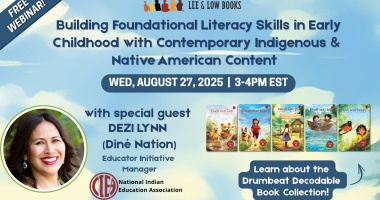
 Earlier this week our Tu Books publisher, Stacy Whitman, and author Joseph Bruchac (Killer of Enemies, Wolf Mark), took to Reddit for an “Ask Me Anything” (AMA) session answering questions about writing, publishing, science fiction and fantasy, and everything in between. In case you missed it (or, like me, you find Reddit overwhelming and scary) here’s some of the best advice that came out of that thread:
Earlier this week our Tu Books publisher, Stacy Whitman, and author Joseph Bruchac (Killer of Enemies, Wolf Mark), took to Reddit for an “Ask Me Anything” (AMA) session answering questions about writing, publishing, science fiction and fantasy, and everything in between. In case you missed it (or, like me, you find Reddit overwhelming and scary) here’s some of the best advice that came out of that thread:
Q: What advice can you give for any starting writer? What is the most important thing for a writer to consider?
Stacy Whitman:
If you want to be a writer, you MUST read in the genre in which you want to write. And read a LOT!
Too many beginning writers who try to pitch books to me at conferences respond poorly when I ask them what they’ve read in the genre (because their manuscript or pitch makes it clear they have no idea what’s going on in the genre right now): they either only name books from 30 or even 50 years ago (“I love Heinlein!”) or they actually, when it comes to YA, say things like, “Oh, I don’t read that stuff.” If you wouldn’t read it, don’t write it.
Particularly when writing for young readers, too many inexperienced writers think very badly of the current market so they think they’ll “fix” it by writing their particular book. Think Madonna saying, “Oh, there weren’t ANY good picture books for my daughter, so I decided to write a picture book even though I’ve never read any picture books and don’t know a think about writing picture books!”
This is different from a writer reading a lot of books they love but realizing there is a gap, a book that they want to read but that isn’t out there–this is a writer realizing that there is a possibly marketable idea that they can write to fill that gap. That kind of thinking is awesome in a writer. Just be careful that if find yourself sneering at a genre or category, perhaps you should consider writing in a different category, one that you love.
Joseph Bruchac: A writer is someone who writes. So write. Write a lot. Make it a practice to write every day, no matter what. Do not believe in writer’s block. Write through it. The writing you are doing today might not be published or publishable, but writing is both an art and a craft and you have to devote yourself to it to reach success. Do not expect it to be easy, but if you stick with it, expect it to be fulfilling.
Q: What separates the young adult genre from the adult? I’d like to start writing books in the fantasy genre but I’m not sure If I’d prefer YA or adult.
Joseph Bruchac: On one level, as far as i am concerned, what separates YA from adult is often just the label. I can think of many books that, had the YA label been around back then, would have been classified as YA, but were just seen as “novels” back then. What label would we give THE CATCHER IN THE RYE if it came out today? Both YA and adult novels may have youthful protagonists and deal with such issues as schooling, first romances, and “coming of age” that may often characterize YA stories. I would strongly urge you–or any new author–to follow your heart in your writing. Don’t think about writing for a particular genre, just try to write as well as you can and see where that takes you.
Stacy Whitman:
Along with that, once you’ve written your story, then that’s the time to think about what category it’ll sell under, and only then revise with audience in mind to tweak it if there are problems.
As far as how publishers decide whether something’s YA or adult, YA generally concerns protagonists who are roughly 12 or 13 up through 18 or 19 (this is fluid, as kids tend to “read up,” so protagonists are generally a little older than the target audience, and the target audience for YA is 12-18) whose point of view as a character is immediate rather than nostalgic. Anything younger than that would be a chapter book (readers ages 7-9) or middle grade (readers ages 9-12). Anything older than that and it’s likely adult. Anything told about childhood or teenagerhood but with the voice of an adult looking back (such as the adult narrator in the movie version of Stand By Me), and it’s still adult even if it stars teens.
That’s just a rule of thumb. There are rare exceptions, but generally a first novel isn’t an exception.
Q: What is the hardest part of editing?
Stacy Whitman: The hardest part of editing: having to break away from the book for other duties. So often, particularly at a small publisher, editors wear many hats, and it can be hard to find the dedicated blocks of time necessary to edit without distraction. That’s why you see so many editors exulting in their work-from-home days on Twitter and Facebook. We need those days away from the distractions of meetings and coworkers (whose demands on our time are also legitimate for other business reasons) to dedicate the block of time necessary to really delve into the manuscript.
Stay tuned for our next installment with advice on pitching, querying, and marketing. You can also read the full thread on Reddit here.








